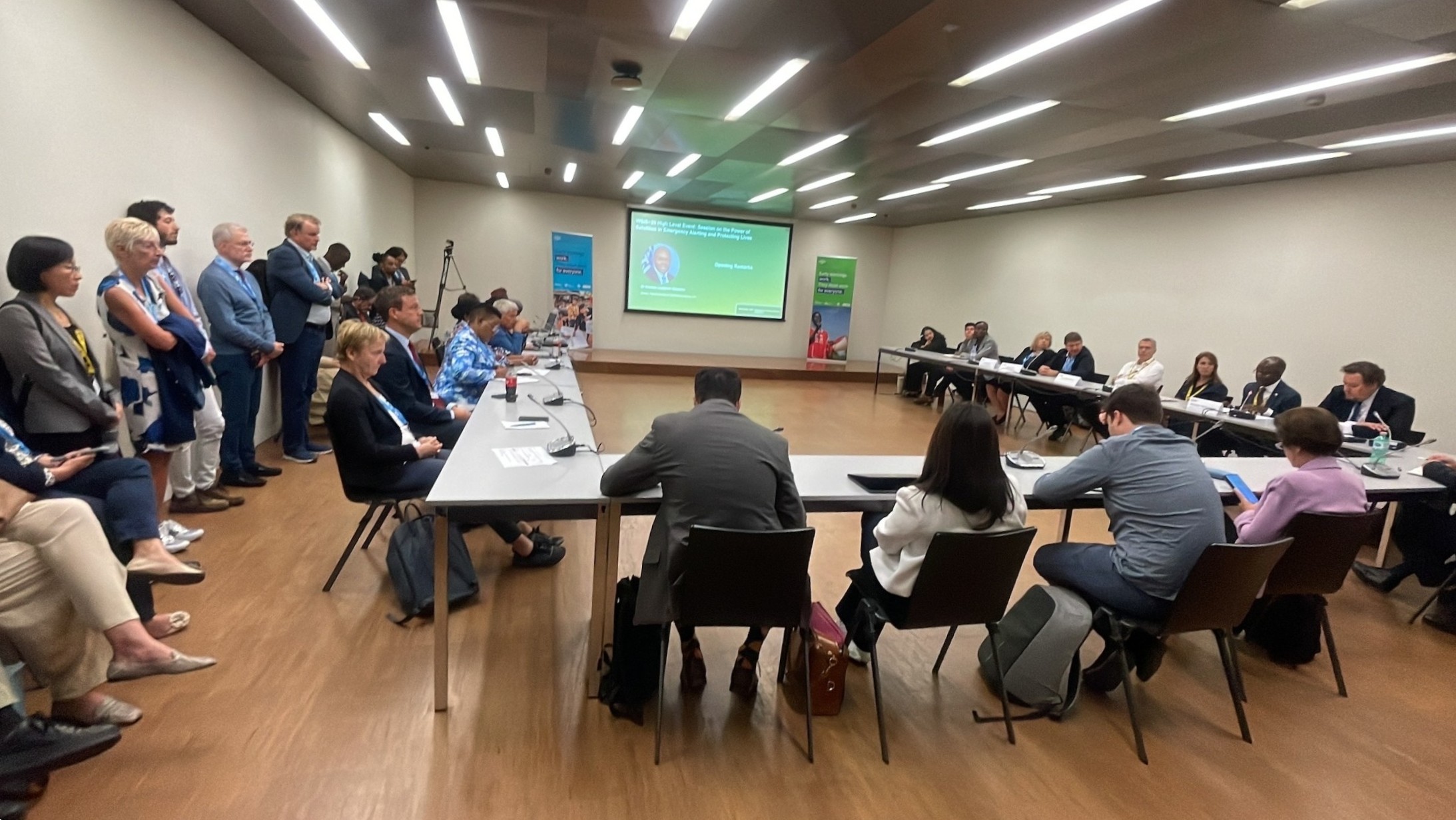
The WSIS Forum
The World Summit on the Information Society (WSIS) is an existing multistakeholder United Nations (UN) process on digital governance and cooperation with a vision of fostering people-centered, inclusive, and development-oriented information and knowledge societies.
The WSIS+20 High-Level Event 2025 took place from 7 to 11 July 2025 at Palexpo in Geneva, Switzerland, co-hosted by the International Telecommunication Union (ITU) and the Swiss Confederation, and co-organized by ITU, UNESCO, UNDP, and UNCTAD.
Session Date and Time
08 July 2025, 15:00 - 15:45, Room G at Palexpo
Session Background
Satellites have always been a critical part of disaster management by ensuring communication continuity when terrestrial networks are disrupted. In the age of rapid technological advances, new innovations, such as Direct-to-Device (D2D) communication technologies, allow mobile phones to connect directly to satellites without the need for ground-based cell towers. This groundbreaking technology makes it possible for individuals to send and receive emergency alerts, messages, and data in areas where conventional cellular infrastructure is unavailable, especially in remote and hard-to-reach locations, or when terrestrial services are disrupted during times of emergencies. These developments and opportunities are critical for expanding services and delivering better early warning systems, and for helping to achieve the Early Warnings for All Initiative.
This session was jointly organized by ITU and the Global Satellite Operator’s Association (GSOA). For more information, visit the WSIS+20 High-Level Event 2025 website here.

Panel Composition
Moderator: Mr Alexandre Vallet, Chief, Space Services Department, Radiocommunication Bureau, ITU
Welcome remarks:
Panellists
- Mr Pierre Philippe Mathieu, ESA implementation manager, European Space Agency
- Mr Philippe Lattes, CEO & Co-founder of LEOBLUE
- Ms Margo Deckard, Co-Founder, Lynk Global, Inc
- Ms Isabelle Mauro, Director General, GSOA
See the biographies of panellists and speakers here.
Outcomes
- Enhanced understanding of satellite technology in disaster response: Participants gained a deeper understanding of how satellite communication systems, including direct-to-device capabilities, play a critical role in emergency alerting and disaster response, and their current status.
- Improved collaboration and preparedness for crisis situations: Attendees were equipped with knowledge on how satellite technologies, with the help of AI, can be integrated into early warning systems as well as into national and international disaster management strategies.